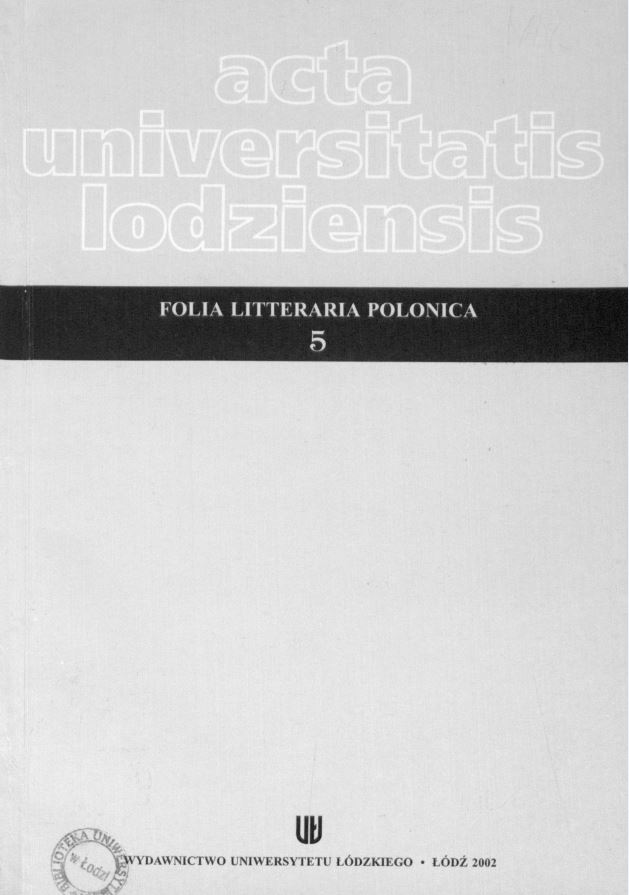Pragmatyzm w dydaktyce polonistycznej
DOI:
https://doi.org/10.18778/1505-9057.05.23Abstrakt
The aim of this article is to focus on pragmatic teaching in a modern school. Getting knowledge should always be connected with improving certain skills (linguistic, analytic, critical etc.).
Firstly, in this work the methods of teaching and forms of statement of pragmatic aims were shown. It is pointed out what kind of skills students acquire when particular methods of leaching are used (e.g. discussions, methods of plan, dramas, press conferences, or projects) and how teaching various forms of expressing ideas influences gaining competence of a sender and a receiver of messages. It is also presented how the methods let the young people develop their minds, imagination, and critical attitudes. In other words, all this allows the students to use their knowledge functionally.
Moreover, the article raises the importan issue of linguistic, literary and cultural education in the sense of pragmatic teaching. Learning about a language should predominantly provide the students with learning the language (M. Nagajowa). Literary education demands some analytic skills, and encouraging to participate in culture, improving the abilities of reception of various forms of art by creative activities aim at making the young people be aware of practical usage of their knowledge.
The article also underlines reading comprehension skills – extremely important with a view to the new linal secondary-school exams (Matura 2002) coming soon, and it has, according to S. Bortnowski, some ‘utilitarian dimension’.
To sum up, the modern school should educate pragmatists, who experiment, initiate and use.
Pobrania
Pobrania
Opublikowane
Jak cytować
Numer
Dział
Licencja

Utwór dostępny jest na licencji Creative Commons Uznanie autorstwa – Użycie niekomercyjne – Bez utworów zależnych 4.0 Międzynarodowe.











